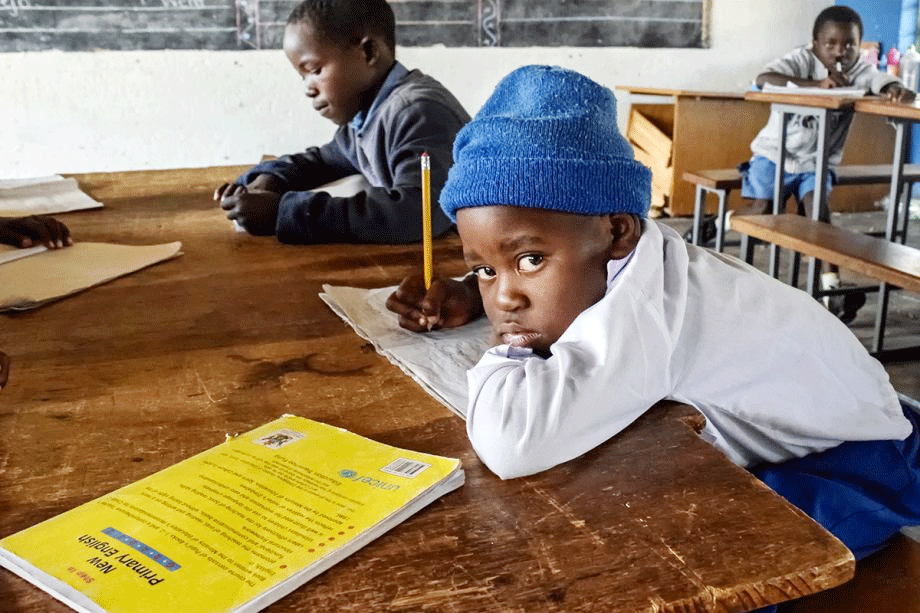
By Tim Middleton A number of years ago, the Durham University Education Department offered a course entitled: Harry Potter and the Age of Illusion with components including, Myths and models: the power of educational examples, Muggles and magic: the escape from the treadmill and the recovery of enchantment, Magic, reason and reality and The peer group: bullying, friendship and solidarity. Those subjects certainly sound a great deal more appealing than many subjects being offered in schools, colleges and universities.
It makes us think about subjects that we offer in schools. The traditional core subjects like English, Maths, Sciences, Geography, History, Religion and latterly IT would no doubt obviously be retained while the more practical subjects like Drama, Art, PE and Music will bring variety and breadth to the process of learning.
However, there are many other subjects that could well vie for attention, including Economics, Politics, Astronomy, not to mention the likes of Psychology, Sociology and Anthropology. There are many more suggestions on the internet on what else could be taught with one being, ‘Human Rights, How Government works and Why it is important to vote’.
Of course, we have not mentioned Philosophy, which to many is at the very heart of education, the real essence of learning. Within Philosophy, there are many different components, including Metaphysics, Ethics and, let us not forget, Logic. Logic is defined as “a proper or reasonable way of thinking about something: sound reasoning.” We might consider the following as examples of that: “If you fall and break your legs, don’t come running to me” or “If Roosevelt was alive he would be turning in his grave”. In very basic, simple terms, logic is a matter of “If this and that, then it follows that…” so the man who said, “If at first you don’t succeed, sky-diving is not for you” was logical.
Logic may be taught directly, through formal logic, with the example given that “All spiders have eight legs: Black Widows are spiders; therefore, Black Widows have eight legs”. The cynic here might point out that not all spiders have eight legs, as some legs may have been bitten or snapped off, which would, incorrectly but logically, imply that they are no longer spiders. However, as in other subjects, so with logic, sometimes we learn what something is by what it is not.
It is interesting to note that in recent days children have been learning such lessons in logic, courtesy of Covid. At the start of this year, schools were not to open though all other businesses and industries did not face such restrictions — is there logic in that? Children are not allowed to go to school, on the grounds of Covid (we are led to understand), but they can go to the shops and ride on buses — is there logic in that? Standard Operating Procedures are put in place to ensure schools are safe places, but schools are not allowed to open even when they can meet all the protocols — is there logic in that? Zimbabweans are thanked for being vaccinated, to eliminate the spread of Covid, but people must still stay away from schools — is there logic in that?
When schools were open, pupils were not expected to do sport yet they are more likely to catch Covid in a classroom than on a sports field — is there logic in not playing sport? Schools are to get approval from parents and permission from government to raise fees but shops, businesses, medical aid societies do not have to ask customers or government for such permission to increase prices — is there logic in that? Schools that can open may not open until all can open yet there is no law that says no-one may drive a car until everyone has a car — is there logic in that?
We do well to point out that logic depends on where the argument starts; if we start at different positions, the argument will continue in different directions. Where then is the starting point of education? It must surely be the children and what is best for them. Throughout these days and months, our children have actually been learning a great deal about logic as well as those interesting ones we would want them to learn: how government works; The peer group: bullying, friendship and solidarity; as well as myths and models: the power of educational examples. Lessons in logic are being taught — through illogical examples. All these children are learning is that there is no place for logic. Oh, for some magic, reason and reality right now — as well as logic and ethics!
- Chamisa under fire over US$120K donation
- Mavhunga puts DeMbare into Chibuku quarterfinals
- Pension funds bet on Cabora Bassa oilfields
- Councils defy govt fire tender directive
Keep Reading
Tim Middleton is the executive director of the Association of Trust Schools [ATS]. The views expressed in this article, however, are solely those of the author in his private capacity and do not necessarily represent the views of the ATS.
email: ceo@atschisz.co.zw
website: www.atschisz










